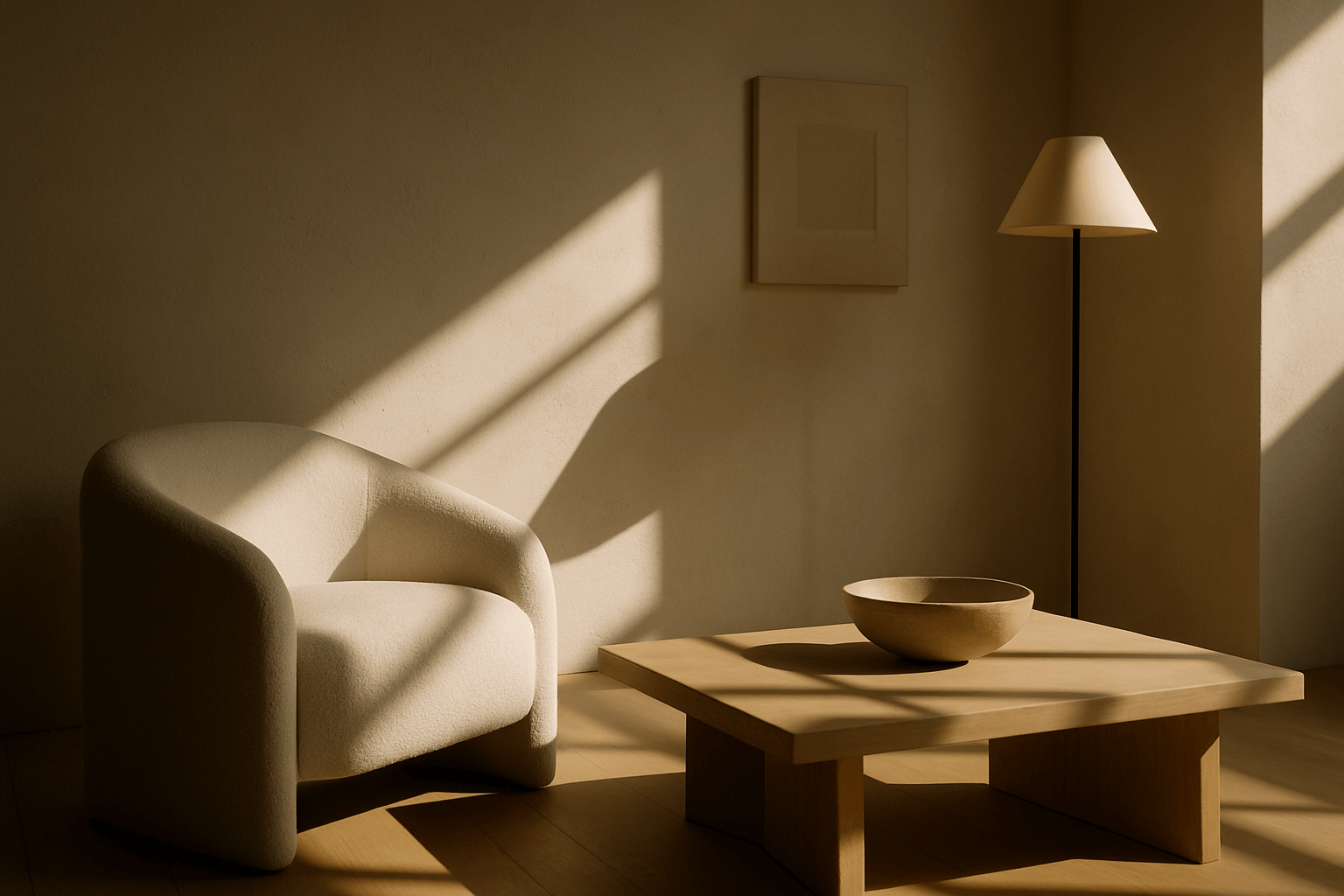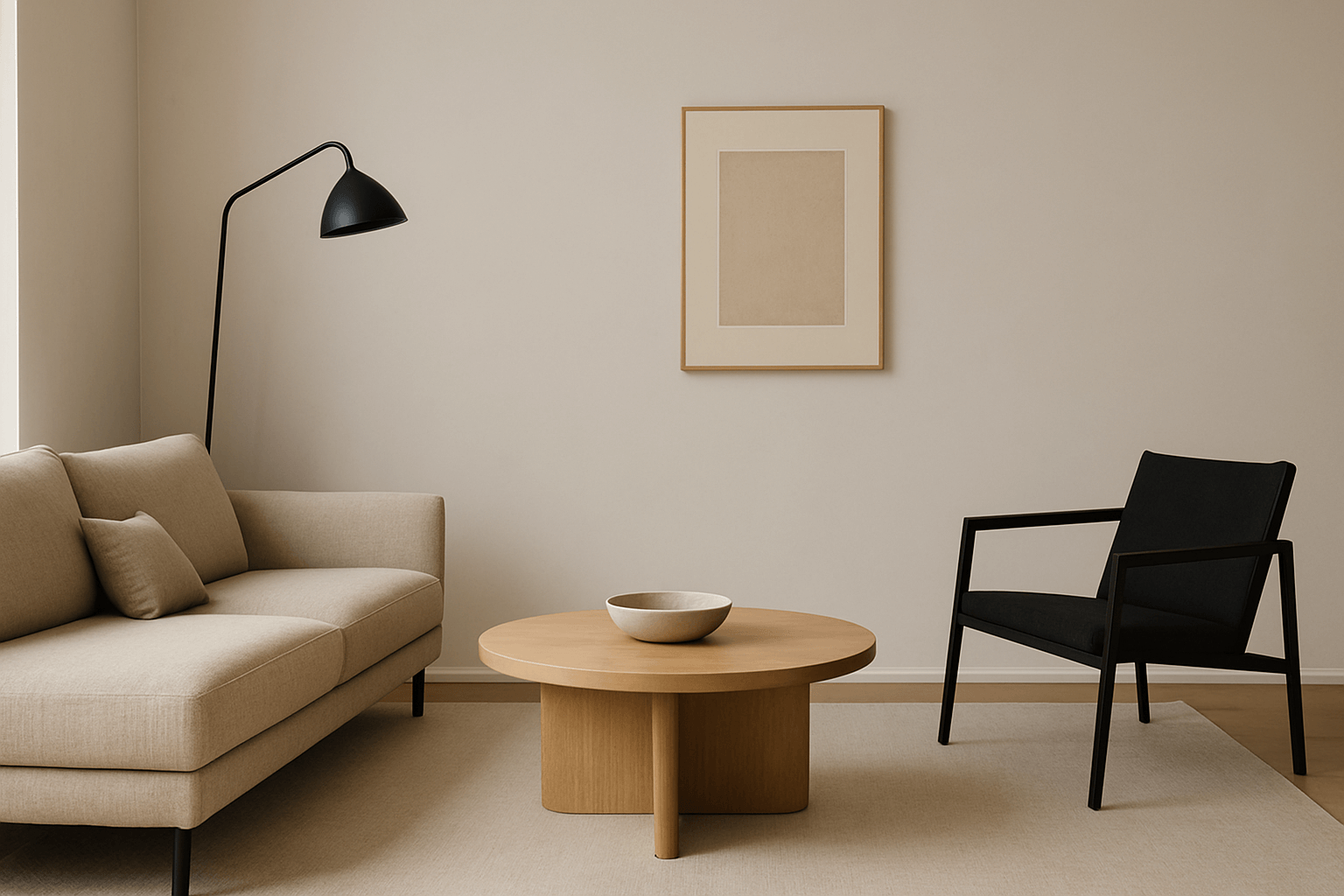What Is Quiet Luxury?
Quiet luxury is a design philosophy centered around refinement, restraint, and quality — not flashy branding or trend-driven choices. It’s about subtle sophistication: a calm, composed environment that speaks through materials, craftsmanship, and intention rather than noise.
In minimalist interiors, quiet luxury shows up through texture, tone, and detail — not excess.
It’s not about spending more. It’s about choosing better.
1. Subtle Over Statement
Where maximalism relies on bold color and pattern, quiet luxury chooses understatement.
Look for:
-
Tone-on-tone palettes that layer warmth and neutrality
-
Natural textures like soft boucle, fine linen, or brushed oak
-
Elegant proportions and clean silhouettes that don’t demand attention but reward closer inspection
The beauty is in the details — not in the volume.
2. Quality Over Quantity
One of the clearest distinctions between minimalism and quiet luxury is a heightened emphasis on materials and craftsmanship.
In a quiet-luxury space:
-
A single sculptural chair may replace five decorative objects
-
A wool throw is chosen for its weave, not its color
-
A handmade ceramic bowl might sit alone on a table — because that’s enough
Fewer pieces, but better ones. The room is quiet, but never empty.
3. Materials Matter
Quiet luxury is tactile. It draws you in not with color, but with sensation.
Examples:
-
Velvet that absorbs light
-
Raw silk that moves gently in a breeze
-
Solid wood with visible grain
-
Soft plaster walls with depth and irregularity
These materials don’t age out of style — they age in. That’s the difference.
4. Embrace Patina and Imperfection
Quiet luxury honors authenticity. It welcomes wear, marks, and texture. It rejects perfectionism in favor of honesty.
Think:
-
A well-worn leather chair that gains character over time
-
A handmade vase with slight asymmetry
-
A floor with subtle scratches that tell a story
In minimalist homes, this adds soul and warmth — the opposite of cold or sterile.
5. Silence Is the Statement
In quiet luxury, there’s confidence in not adding more. The silence of the space becomes part of its richness. Instead of filling walls and shelves, you create pause and presence.
This means:
-
Fewer visual distractions
-
Emphasis on scale, placement, and balance
-
A home that feels settled, not staged
The result? A space that doesn’t shout for attention — it earns it.
Final Thought
Quiet luxury is minimalism, evolved. It’s still about simplicity, but it adds a layer of depth and refinement — rooted in care, intention, and the quiet joy of living with fewer, better things.
It’s not what’s in the room that impresses.
It’s what the room says — quietly.
















